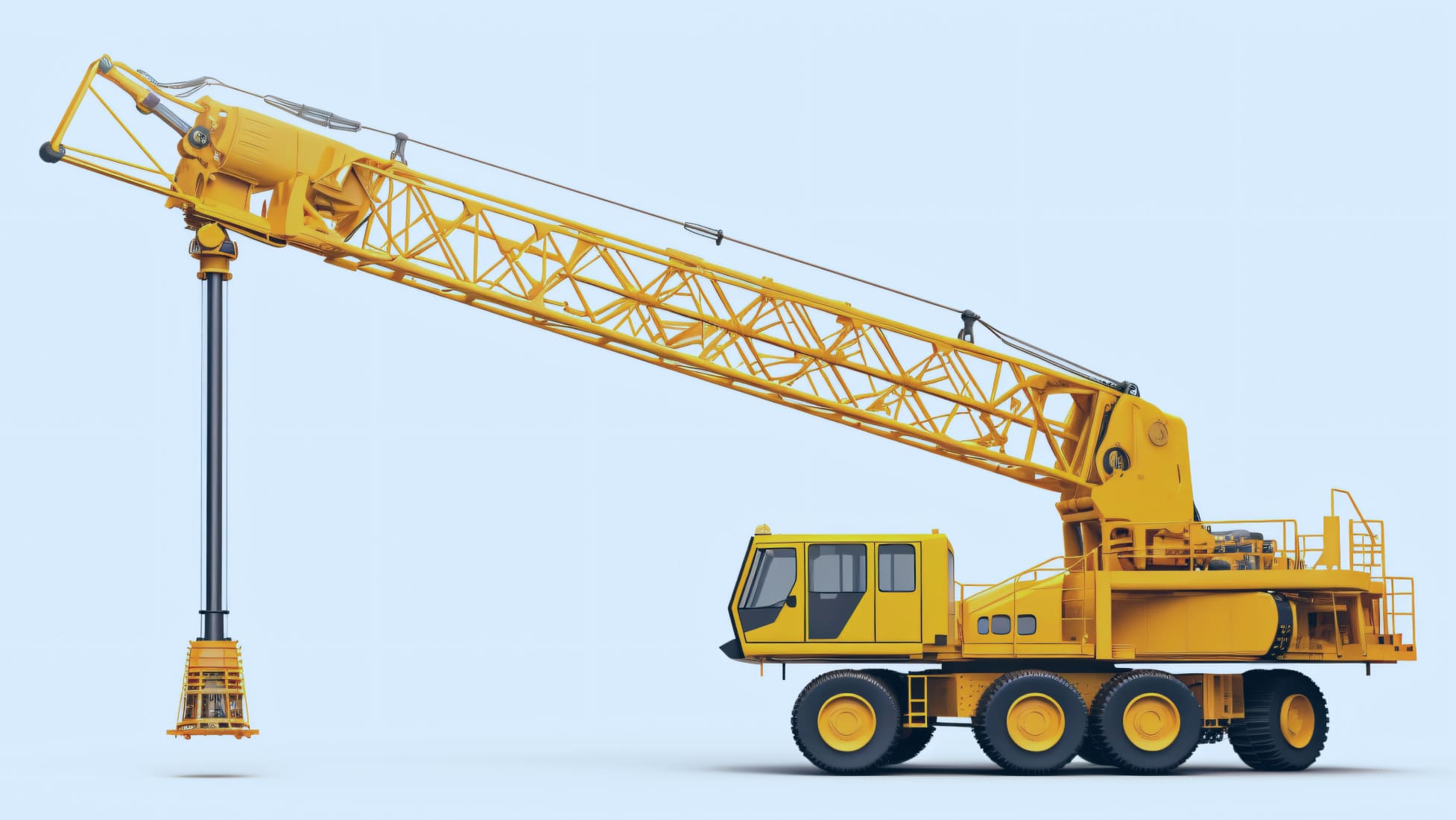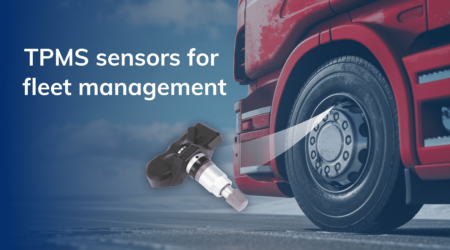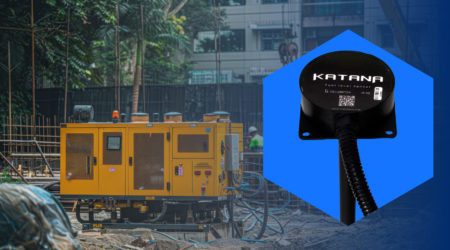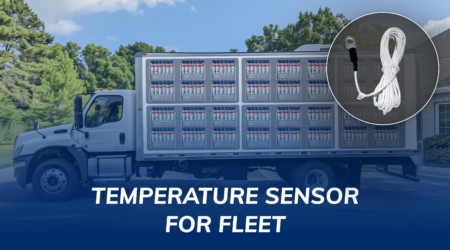Why Invest in Capacitive Fuel Level Sensors for Your Crane?
In the world of heavy machinery, cranes play a pivotal role in numerous industries, lifting and moving heavy loads with precision. Their efficiency and effectiveness hinge on various factors, one of which is fuel management. Here, we delve into why capacitive fuel level sensors are becoming a critical investment for crane operators. These devices not only ensure the accurate monitoring of fuel levels but also pave the way for cost savings, operational efficiency, and environmental compliance.
Understanding Capacitive Fuel Level Sensor
At its core, a capacitive fuel level sensor measures the amount of fuel in a tank using capacitance. This technology involves two conductive plates separated by a dielectric material. As the fuel level changes, so does the capacitance, providing a precise measurement of the fuel volume. Unlike traditional float-based sensors, capacitive sensors offer a more accurate and reliable method for monitoring fuel levels, free from moving parts that wear out or fail over time.
Technology Behind the Sensors
Capacitive fuel level sensors stand out for their accuracy. They work by measuring the change in capacitance as the fuel level alters, a method far superior to mechanical gauges that can stick or break. These sensors send real-time data, allowing for immediate adjustments and monitoring.
Differences and Benefits
Compared to other sensors, capacitive types offer several benefits:
- Accuracy: They provide precise readings, critical for managing fuel consumption and costs.
- Durability: With no moving parts, they are less prone to wear and tear.
- Versatility: Capable of working with a variety of fuel types without recalibration.
This technology ensures that crane operators have accurate, real-time access to fuel data, a crucial component in maximizing operational efficiency and reducing unnecessary expenditures.
Cost-Effectiveness of Capacitive Fuel Level Sensors
Investing in capacitive fuel level sensors may seem like an added expense at first glance. Here’s how these sensors make a financially sound choice for crane operators:
Long-Term Savings
Capacitive sensors reduce the need for frequent replacements or repairs, unlike mechanical sensors that are prone to wear and tear. Additionally, accurate fuel measurements prevent overfilling and underutilization, optimizing fuel consumption and reducing waste.
Reduction in Fuel Theft and Inaccuracies
Fuel theft is a common challenge in the industry. Capacitive sensors offer precise monitoring, making it easier to detect discrepancies in fuel levels that could indicate theft. This accuracy also minimizes errors in fuel accounting, ensuring that operations are both secure and efficient.
Improved Fuel Management and Budgeting
With real-time data on fuel consumption, crane operators can better manage their fuel budgets, plan refueling schedules, and avoid unexpected downtimes due to fuel shortages. This level of management not only saves money but also enhances overall operational planning and execution.
Enhancing Operational Efficiency
The accuracy and reliability of capacitive fuel level sensors significantly contribute to improving the operational efficiency of crane operations. Here’s how:
Better Fleet Management
Knowing the exact fuel levels of each crane allows for more effective fleet management. Operators can optimize the use of their cranes based on fuel efficiency, ensuring that projects are completed efficiently and cost-effectively.
Reduction in Downtime
With capacitive sensors, unexpected downtimes due to fuel shortages or mismanagement are greatly reduced. Operators have a clear understanding of when refueling is needed, allowing for better scheduling and minimizing idle time.
Operational Improvements
Accurate fuel data enables operators to analyze fuel consumption patterns and identify areas for improvement. Whether it’s adjusting operating procedures or scheduling maintenance, these insights lead to smarter decisions that boost productivity and reduce costs.
Environmental Benefits
In today’s world, environmental responsibility is not just a legal obligation but also a moral and societal expectation for businesses. Capacitive fuel level sensors contribute significantly to greener operations in several ways:
Reducing Carbon Footprint
Accurate fuel measurement allows crane operators to optimize fuel use, reducing unnecessary consumption. This optimization directly correlates to lower emissions, contributing to a smaller carbon footprint for construction, manufacturing, and logistics operations that rely heavily on cranes.
Compliance with Environmental Regulations
Many industries are subject to strict environmental regulations, including mandates on emissions and energy efficiency. By ensuring precise fuel management, capacitive sensors help businesses comply with these regulations, avoiding fines and supporting sustainability goals.
Sustainable Operational Practices
Beyond compliance, using capacitive fuel level sensors aligns with broader corporate sustainability initiatives. They enable companies to monitor and report on their environmental performance accurately, enhancing their reputation as environmentally responsible entities.
Safety and Reliability
The inherent characteristics of capacitive fuel level sensors make them a cornerstone for not just operational efficiency and environmental stewardship but also for enhancing safety and reliability in crane operations:
Enhanced Safety
Fuel management is not merely about efficiency; it’s also a critical safety concern. Accurate fuel level monitoring can prevent accidents related to fuel shortages or leaks, which can be hazardous in operational settings. By providing precise and reliable fuel data, capacitive sensors contribute to a safer work environment.
Reliability in Harsh Conditions
Cranes often operate in extreme conditions—be it high altitudes, fluctuating temperatures, or exposure to dust and moisture. Capacitive fuel level sensors are designed to withstand these harsh conditions, offering consistent performance without the need for frequent maintenance or calibration.
Advantages
The lack of moving parts in capacitive sensors means they are less susceptible to wear and tear compared to mechanical sensors. This durability ensures long-term reliability, reducing the risk of unexpected failures that could lead to operational delays or accidents.
Conclusion
Investing in capacitive fuel level sensors for cranes is a decision that pays dividends across multiple facets of operation. From the get-go, it might seem like a mere upgrade to fuel management systems. However, as we’ve explored, the implications run deeper, touching on cost savings, operational efficiency, environmental responsibility, and safety.
The journey towards optimizing crane operations is complex, but capacitive fuel level sensors provide a clear path to improvement. They offer a blend of accuracy, reliability, and durability that traditional fuel measurement methods simply cannot match. By embracing this technology, businesses can not only enhance their operational performance but also contribute to a more sustainable and safer industry standard.
In a world where efficiency and sustainability increasingly go hand in hand, the strategic benefits of investing in capacitive fuel level sensors are undeniable. It’s time for crane operators and industry leaders to consider upgrading their equipment, securing not just immediate operational gains but also supporting the long-term viability and reputation of their operations.
As we look to the future, the role of advanced technologies like capacitive fuel level sensors in driving industry progress cannot be overstated. They represent a smart investment in operational excellence, environmental stewardship, and safety—key pillars for success in the modern industrial landscape.





